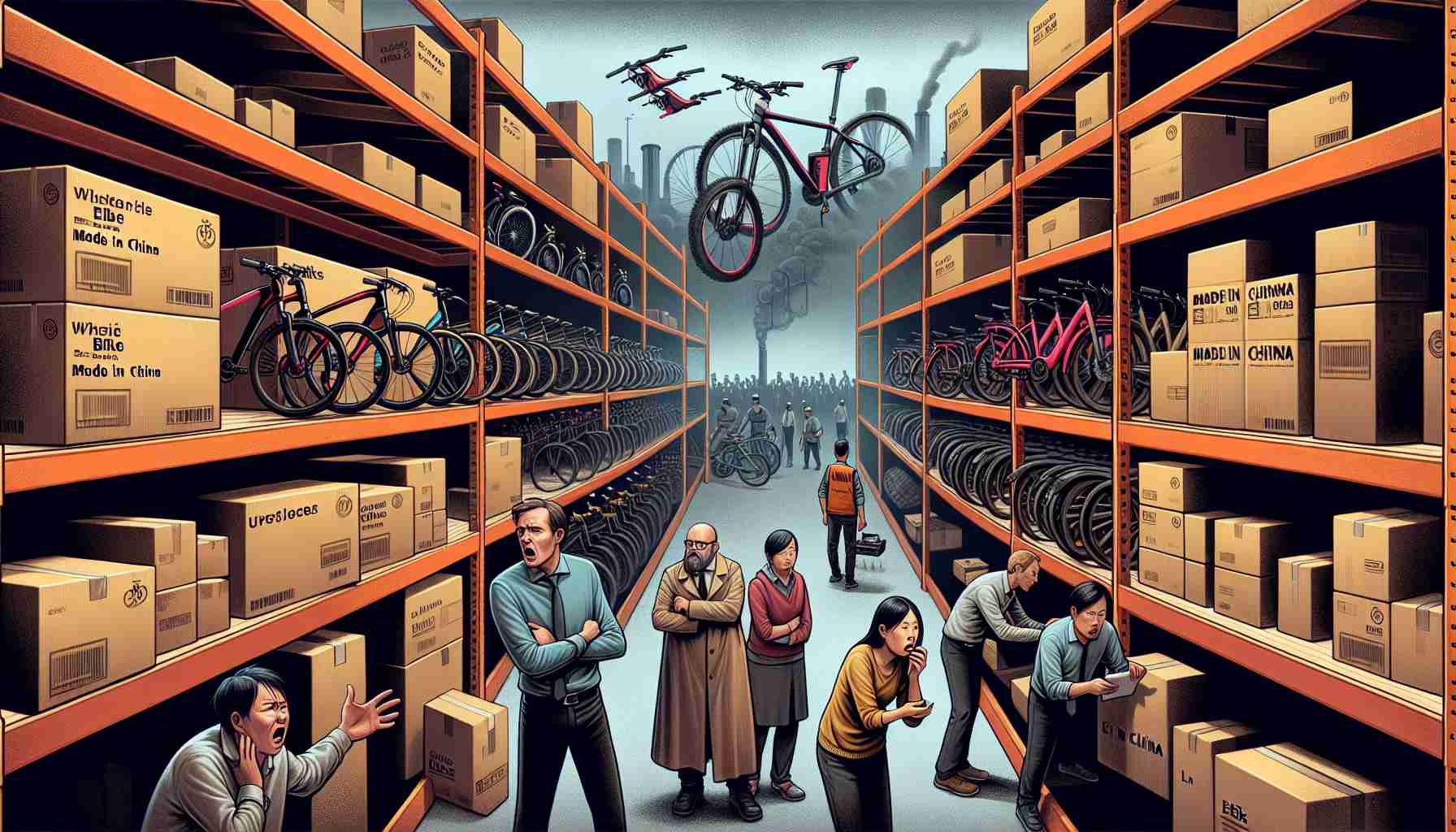- The UK government removed tariffs on non-folding Chinese e-bikes, impacting local manufacturers.
- This decision may save consumers up to £200, but has angered British manufacturers who feel betrayed.
- Companies like Volt had invested in local production expecting tariff protection.
- The influx of low-cost imports could destabilize an already challenged e-bike market.
- Industry experts warn that this shift may jeopardize the future of UK e-bike manufacturing.
- This situation raises concerns about prioritizing consumer savings over sustaining British industry.
The UK government’s shocking decision to lift tariffs on non-folding Chinese e-bikes has sent shockwaves through the domestic manufacturing sector. Once touted as a protective measure to bolster local production after Brexit, these tariffs are set to vanish, opening the floodgates for cheaper imports. Business Secretary Jonathan Reynolds endorsed this controversial shift, which could save UK consumers up to £200, but it has British manufacturers fuming.
Companies like Volt, run by brothers James and Lyle Metcalfe, feel betrayed. They transitioned their manufacturing from China to the UK under the assumption that tariffs would safeguard their investments. Lyle expressed his confusion over the government’s decision, questioning the logic behind lifting tariffs when the UK market was already competitive.
The ride isn’t easy for others in the industry either. David Miall, from Wisper Bikes, warned of an impending “flood” of low-cost e-bikes that could overwhelm an already struggling market. With many companies still reeling from post-pandemic slowdowns, they face a dire future as inventory piles up.
The bicycle industry, once buoyed by COVID cycling booms, now navigates a treacherous landscape. While the government claims to be acting in consumers’ best interests, many believe they are jeopardizing the future of UK e-bike manufacturers. This pivotal moment raises an alarming question: Is the quest for cheaper prices worth risking the very fabric of British industry?
Key takeaway: The decision to permit cheaper imports may seem beneficial for consumers, but it poses a serious threat to domestic manufacturers who are struggling to survive in a volatile market.
UK E-Bikes: The Tariff Takedown and Its Ripple Effects
The UK government’s recent decision to lift tariffs on non-folding Chinese e-bikes has provoked significant reactions across the domestic manufacturing sector and raises several implications for the market. While intended to make e-bikes more affordable for consumers, this shift could jeopardize the survival of British manufacturers who have been trying to regain their footing since Brexit and the pandemic.
Pros and Cons of Lifting Tariffs
Pros:
– Lower Prices for Consumers: The removal of tariffs means UK consumers could save up to £200 on e-bike purchases, making this mode of transport more accessible.
– Increased Variety: Cheaper imports could lead to a wider range of e-bike options available in the market.
Cons:
– Threat to Domestic Manufacturers: Local companies, like Volt and Wisper Bikes, feel the weight of increased competition from imported e-bikes, which could force them to reduce prices or cut back on production.
– Job Loss Risks: The influx of cheap imports could threaten jobs in the UK manufacturing sector that have only recently begun to recover.
Market Forecasts and Trends
Following the lifting of tariffs, the UK e-bike market is likely to see rapid changes:
– Market Overpopulation: Industry experts predict a surge in cheap e-bikes could swamp the market, pushing several manufacturers to the brink.
– Shift in Consumer Behavior: As affordability increases, first-time buyers may flock to the market, potentially altering the demographics of e-bike ownership.
Key Insights and Innovations
– Manufacturing Innovations: To compete with cheaper imports, UK manufacturers may need to innovate in product design or explore unique selling propositions like enhanced sustainability or local craftsmanship.
– Focus on Sustainability: As consumers grow increasingly eco-conscious, bike companies emphasizing green manufacturing practices may hold an advantage.
Major Questions on the Topic
1. How will the lifting of tariffs affect the future of UK e-bike companies?
The consequences may include further market consolidation, where only the most resilient companies survive. Local producers could either pivot to specialize in premium products or continue to struggle against low-cost imports.
2. What measures can the UK government take to support local manufacturers post-tariff lift?
Potential actions could include providing subsidies for local manufacturers, investing in innovation grants, and implementing training programs to ensure workers remain competitive.
3. What long-term impact will this decision have on UK consumers?
While short-term benefits may include lower prices, there could be long-term implications for product quality and variety as local manufacturing dwindles, possibly leading to less innovation in the future.
Conclusion
The UK government’s decision could dramatically reshape the e-bike landscape in the country. As manufacturers and consumers navigate this newfound challenge, the balance between affordability and local industry health remains precariously poised.
For more insights on cycling and the e-bike industry, check out Cycle Scheme.













